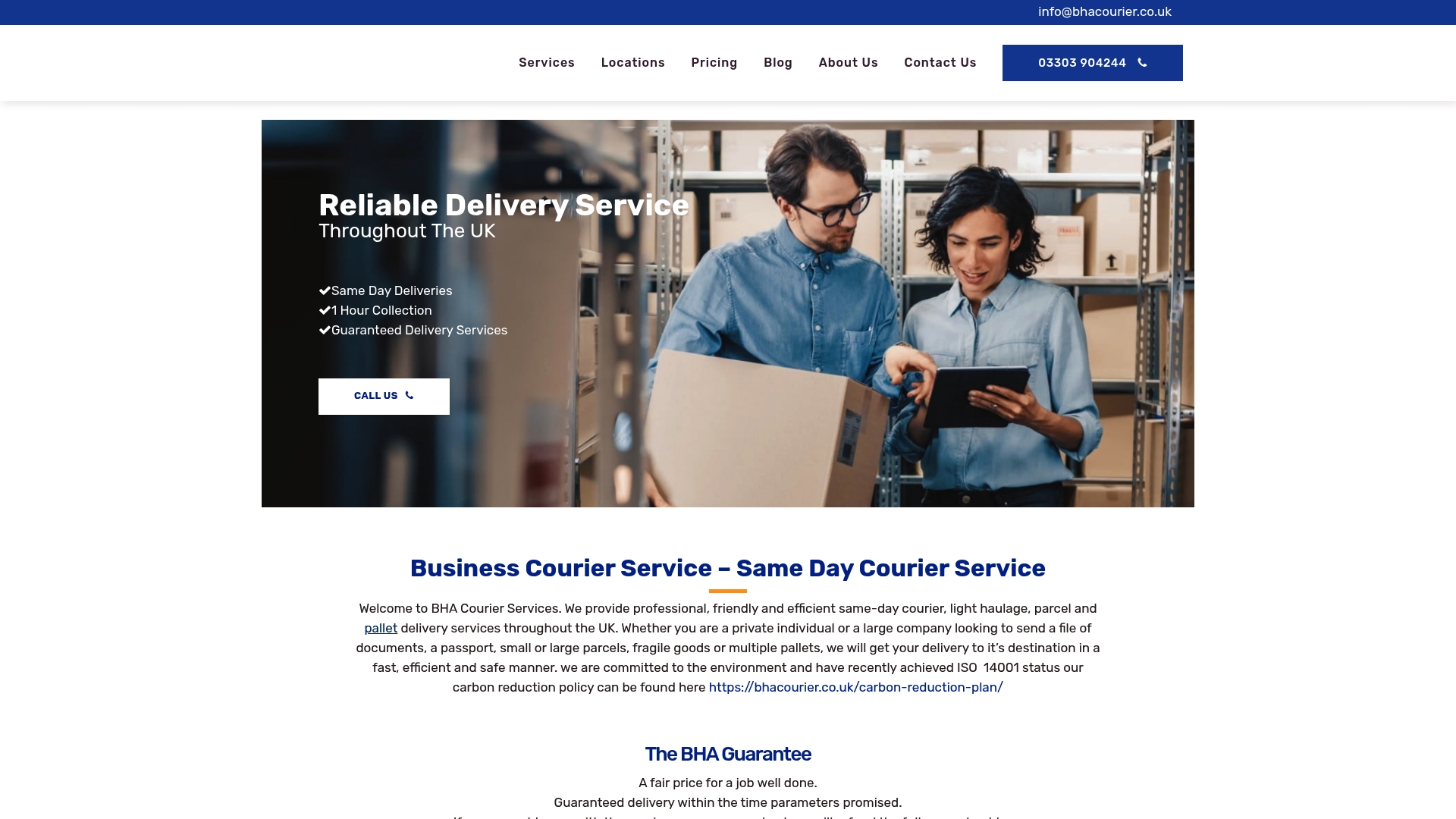
18 Aug How to Scale a Business: Strategies for UK Success
Scaling a business in the UK might sound straightforward at first. Yet more than half of high-growth companies say access to talent is one of their top three barriers to success, even above funding or tech adoption. Most surprising of all though, the fastest growers are not only fuelled by new technology or huge investment, but by building the right culture and foundations—proof that the people and planning behind the scenes matter just as much as the product or service you sell.
Table of Contents
- Building A Strong Foundation For Growth
- Optimising Processes And Embracing Technology
- Attracting Talent And Developing Teams
- Adapting To The UK Business Environment
Quick Summary
| Takeaway | Explanation |
|---|---|
| Develop a robust strategic business plan | Conduct thorough market analysis to identify unique value propositions and set measurable goals aligned with your vision. |
| Ensure financial resilience with diverse funding | Maintain strong cash flow management and explore multiple funding sources, including grants and investors, to support expansion. |
| Foster an adaptable and capable team | Hire individuals who align with your culture and invest in their professional development to create a growth-oriented environment. |
| Embrace digital transformation for efficiency | Implement scalable technologies and automation processes that enhance operational efficiency and support business adaptability. |
| Integrate sustainability into business strategy | Focus on ethical practices and reducing environmental impact, as these can enhance brand reputation and attract customers. |
Building a Strong Foundation for Growth
Successfully scaling a business requires more than ambition. It demands a strategic approach that establishes robust operational, financial, and organisational foundations. For UK entrepreneurs seeking sustainable growth, understanding the critical elements that create a resilient business framework is paramount.
Strategic Business Planning and Infrastructure
Business growth begins with meticulous planning and solid infrastructure. The ScaleUp Institute’s 2020 review reveals that high-growth businesses generate 20% of employment and turnover growth, highlighting the importance of strategic positioning. This means developing comprehensive business plans that go beyond basic financial projections.
Effective strategic planning involves several key components. First, conduct a thorough market analysis to understand your competitive landscape. Identify unique value propositions that differentiate your business from competitors. Next, establish clear short and long term goals with measurable key performance indicators (KPIs). These goals should be specific, realistic, and aligned with your overall business vision.
Technology infrastructure plays a crucial role in scalability. Invest in scalable digital systems that can grow alongside your business. This includes cloud computing solutions, customer relationship management (CRM) platforms, and enterprise resource planning (ERP) systems that can adapt to increasing operational complexity.
Financial Resilience and Resource Allocation
Financial stability is the cornerstone of sustainable business growth. According to UK government research on small business growth, understanding financial dynamics is critical for expansion. This means developing robust financial management practices that support strategic objectives.
Key financial considerations include:
- Cash Flow Management: Maintain detailed cash flow projections and build financial buffers
- Diversified Funding Sources: Explore multiple financing options like bank loans, angel investors, government grants, and venture capital
- Cost Control: Implement rigorous expense tracking and periodic financial audits
- Investment in Growth: Allocate resources strategically towards areas with the highest potential return
Businesses must also develop financial flexibility. This involves creating contingency plans, maintaining healthy cash reserves, and being prepared to pivot quickly in response to market changes.
Building a Capable and Adaptable Team
No business can scale without a strong, adaptable team. Recruitment strategies should focus on hiring individuals who not only possess necessary skills but also align with the company’s culture and growth mindset. Invest in continuous professional development, create clear career progression pathways, and foster a culture of innovation and learning.
Effective team building also means developing robust communication systems, establishing clear roles and responsibilities, and creating an environment that encourages collaboration and continuous improvement. Consider implementing performance management systems that reward initiative and support employee growth.
By focusing on strategic planning, financial resilience, and team development, businesses can create a solid foundation that supports sustainable scaling. Remember, growth is not just about increasing size but about building a more capable, efficient, and adaptable organisation.
Below is a table summarising key strategies for building a strong foundation for business growth, as discussed in this section:
| Foundation Pillar | Key Actions |
|---|---|
| Strategic Business Planning | Market analysis, define unique value, set goals and KPIs |
| Infrastructure Development | Invest in digital systems (cloud, CRM, ERP) for scalability |
| Financial Resilience | Cash flow management, diversify funding, cost control, strategic investment |
| Team Building | Hire for culture/skills, invest in development, clear communication |
| Performance Management | Establish KPIs, reward initiative, support employee growth |

Optimising Processes and Embracing Technology
In the rapidly evolving business landscape, technology and process optimization are not just competitive advantages but essential survival strategies. UK businesses must continuously adapt and leverage digital tools to remain agile, efficient, and innovative.
Digital Transformation and Operational Efficiency
Digital transformation represents more than technological adoption it is a fundamental reimagining of business operations. Research from MIT Sloan highlights that successful organizations combine process knowledge with technical expertise to implement automation effectively.
Key areas for digital optimization include:
- Workflow Automation: Implement software solutions that reduce manual tasks and minimise human error
- Cloud Computing: Utilise scalable infrastructure that allows flexible resource allocation
- Data Analytics: Leverage intelligent systems for real time decision making and predictive insights
Businesses should approach digital transformation strategically, focusing on solutions that directly address operational bottlenecks and create measurable efficiency gains.
Technology Integration and Innovation
Digital transformation research indicates that implementing advanced technologies enhances corporate innovation performance. This involves integrating emerging technologies like artificial intelligence, machine learning, and Internet of Things (IoT) devices into existing business processes.
Technological integration requires a holistic approach. Start by conducting comprehensive technology audits to identify current system limitations. Develop a phased implementation strategy that allows gradual adoption and minimises disruption. Prioritise technologies that offer clear return on investment and align with specific business objectives.
For those seeking deeper insights into optimising operational processes, our expert guide on supply chain strategies provides comprehensive recommendations for modern businesses.
Building a Technology Adaptive Culture
Successful technology adoption extends beyond tools it requires cultivating an organizational culture that embraces continuous learning and innovation. This means investing in employee training, creating cross functional technology teams, and developing flexible technological frameworks.
Encourage a mindset of experimentation where employees feel empowered to suggest and test new technological solutions. Implement regular technology review sessions, create innovation workshops, and develop clear pathways for technological skill development.
By combining strategic technological integration, continuous learning, and a forward thinking approach, businesses can transform technological challenges into opportunities for growth and differentiation. The key is not just adopting technology, but understanding how to leverage it effectively to drive business performance.

Attracting Talent and Developing Teams
Building a successful business requires more than just excellent strategies and innovative technologies. At the heart of every thriving organisation is a talented, motivated, and well-developed team. For UK businesses seeking to scale effectively, attracting, developing, and retaining top talent is crucial.
Strategic Talent Acquisition
The ScaleUp Institute’s 2023 review reveals a critical challenge for scaling businesses: 58% of organisations rank talent access as one of their top three barriers to growth. This statistic underscores the importance of developing a comprehensive talent acquisition strategy that goes beyond traditional recruitment methods.
Effective talent acquisition involves multiple approaches:
- Diverse Recruitment Channels: Leverage professional networks, industry events, online platforms, and targeted recruitment campaigns
- Employer Branding: Create a compelling narrative about your company culture and growth opportunities
- Competitive Compensation: Develop attractive remuneration packages that include financial and non financial benefits
Businesses should also consider alternative talent pipelines such as apprenticeships, internships, and partnerships with educational institutions. These approaches not only provide fresh talent but also demonstrate a commitment to workforce development.
Here’s a table outlining the main talent acquisition approaches recommended for scaling UK businesses:
| Approach | Description |
|---|---|
| Diverse Recruitment Channels | Use networks, events, online platforms, and recruitment campaigns |
| Employer Branding | Promote company culture and growth opportunities |
| Competitive Compensation | Offer financial and non-financial benefits |
| Alternative Talent Pipelines | Utilise apprenticeships, internships, educational partnerships |
| Workforce Development | Demonstrate long-term commitment to staff skills and growth |
Continuous Learning and Development
According to UK government guidance, expanding business capacity involves not just hiring new staff but also training existing employees. Continuous learning is essential for maintaining a competitive edge and fostering employee engagement.
Implement comprehensive development programmes that include:
- Skills Training: Regular workshops, online courses, and professional certifications
- Mentorship Programmes: Pairing junior employees with experienced professionals
- Career Progression Pathways: Clear frameworks for internal advancement and skill enhancement
For businesses looking to explore innovative workforce development strategies, our comprehensive guide to talent management offers deeper insights into creating high performing teams.
Cultivating a Supportive Organisational Culture
The King’s Fund research emphasizes the importance of collective leadership and creating an environment where every team member feels responsible for the organisation’s success.
Key elements of a supportive culture include:
- Open Communication: Encourage transparent dialogue and feedback mechanisms
- Recognition and Rewards: Implement systems that acknowledge individual and team achievements
- Work Life Balance: Offer flexible working arrangements and wellness programmes
By prioritising talent attraction, continuous development, and a positive organisational culture, businesses can create a dynamic workforce capable of driving sustainable growth. Remember, your team is your most valuable asset transforming potential into performance requires strategic investment in people.
Adapting to the UK Business Environment
Navigating the complex and dynamic UK business landscape requires strategic understanding, regulatory compliance, and adaptive capabilities. Successful businesses must develop a nuanced approach that considers economic, legal, and market-specific challenges unique to the British entrepreneurial ecosystem.
Understanding Regulatory Frameworks
The UK business environment is characterised by robust regulatory structures that provide both challenges and opportunities for growth. Entrepreneurs must develop comprehensive understanding of legal requirements across taxation, employment law, and industry specific regulations.
Key regulatory considerations include:
- Corporate Governance: Adherence to Companies Act 2006 and associated legal frameworks
- Financial Compliance: Understanding tax obligations, reporting requirements, and financial regulations
- Sector Specific Guidelines: Navigating industry-specific regulatory standards
Businesses should invest in legal consultation and maintain up-to-date knowledge of legislative changes. Regular compliance audits and proactive risk management strategies are essential for sustainable operations.
Economic Landscape and Market Dynamics
The UK business environment presents unique economic challenges and opportunities. Entrepreneurs must develop adaptive strategies that respond to macroeconomic trends, including Brexit implications, technological disruption, and global economic shifts.
Research from the UK Department for Business and Trade highlights the importance of understanding regional economic variations. Different UK regions offer distinct competitive advantages, from London’s financial services ecosystem to manufacturing strengths in the Midlands and technological innovations in regional innovation clusters.
Strategic considerations include:
- Market Research: Continuous analysis of sector trends and regional economic dynamics
- Networking: Engagement with local business associations and professional networks
- Funding Opportunities: Exploring government grants, innovation funds, and regional development programmes
For businesses seeking deeper insights into navigating communication challenges, our comprehensive guide to business communication strategies provides valuable strategic recommendations.
Sustainability and Ethical Business Practices
Modern UK businesses are increasingly evaluated not just on financial performance but on their commitment to sustainability and ethical practices. UK government sustainability reports emphasise the growing importance of environmental and social responsibility in business strategy.
Key sustainability focus areas include:
- Environmental Impact: Reducing carbon footprint and implementing green technologies
- Social Responsibility: Demonstrating commitment to diversity, inclusion, and community engagement
- Ethical Supply Chains: Ensuring transparent and responsible procurement practices
Businesses that integrate sustainability into their core strategy can differentiate themselves, attract socially conscious customers, and create long term competitive advantages.
Successfully adapting to the UK business environment requires a holistic approach. By understanding regulatory landscapes, responding to economic dynamics, and embracing sustainable practices, businesses can create resilient and competitive strategies for growth. The key lies in continuous learning, flexibility, and a proactive approach to emerging challenges and opportunities.
Frequently Asked Questions
How can I create a strong foundation for scaling my business in the UK?
To create a strong foundation, develop a robust strategic business plan, ensure financial resilience through diverse funding sources, and build a capable, adaptable team. Comprehensive market analysis and clear goal-setting are essential.
What are effective strategies for optimising processes in my business?
Effective strategies for optimising processes include implementing workflow automation, leveraging cloud computing for scalability, and using data analytics for decision-making. Focus on addressing operational bottlenecks to enhance efficiency.
How can I attract and retain talent while scaling my business?
To attract and retain talent, utilise diverse recruitment channels, create a strong employer brand, and offer competitive compensation packages. Continuous learning and a supportive organisational culture are also crucial for employee retention.
What sustainability practices should I consider when scaling my business in the UK?
When scaling your business, consider reducing your carbon footprint, implementing ethical supply chain practices, and promoting social responsibility. Integrating sustainability into your core business strategy can enhance brand reputation and customer loyalty.
Fuel Your UK Business Growth with BHA Courier’s Trusted Delivery Solutions
Scaling your business takes more than the right people or strategy. You also need seamless, reliable support for your crucial deliveries—especially when time and security cannot be compromised. Whether you are expanding across new regions or working to streamline logistics as your team grows, delays and delivery failures can threaten your reputation and make it harder to keep customers happy. In the article above, you learned how operational efficiency and trustworthy partners are essential for any successful scale-up.

Why risk setbacks when you can build your growth on a foundation of rapid and secure logistics? Discover how our nationwide same-day and next-day courier services give you the edge for time-critical shipments, from important documents to fragile goods. See how easy it is to book online, track your deliveries, and count on a partner with ISO 14001 environmental credentials. Take the next step toward reliable, scalable business transport with BHA Courier—connect now to ensure your operations run smoother every day.


